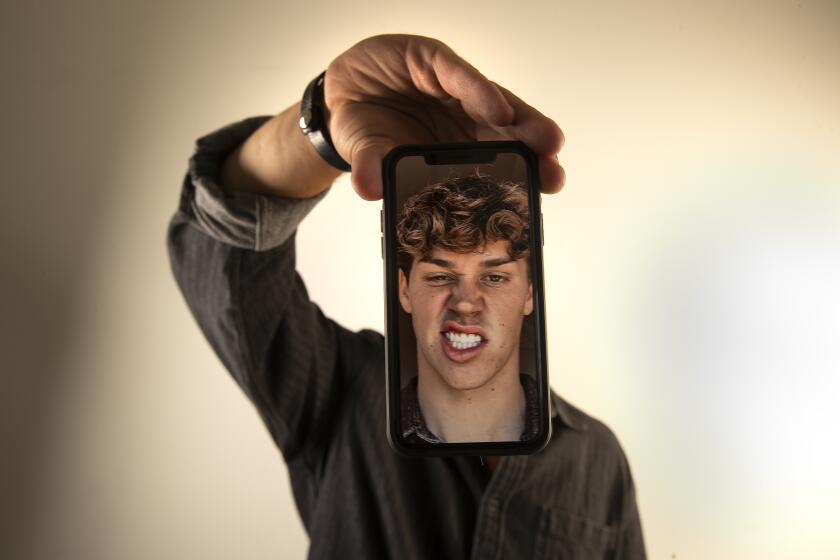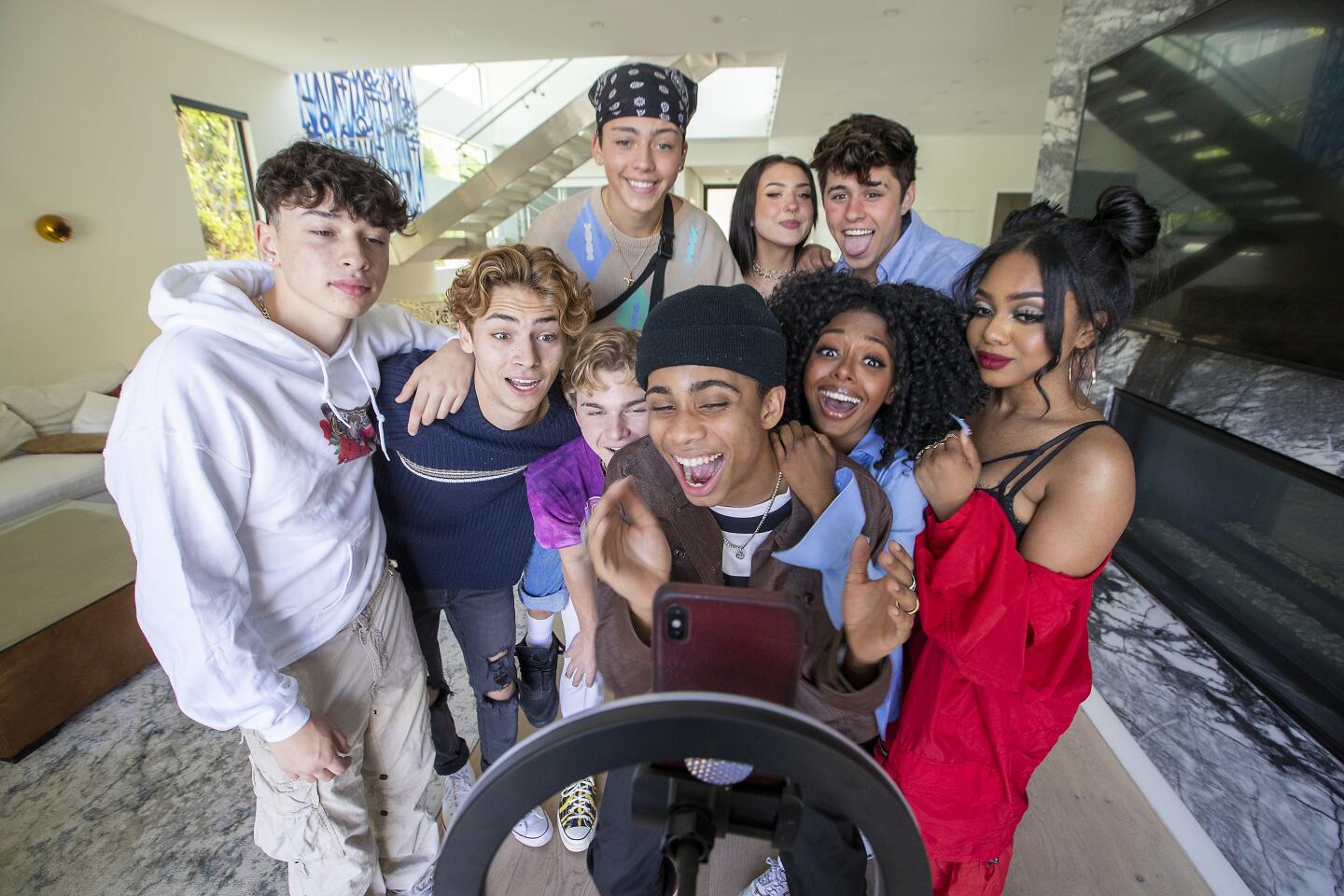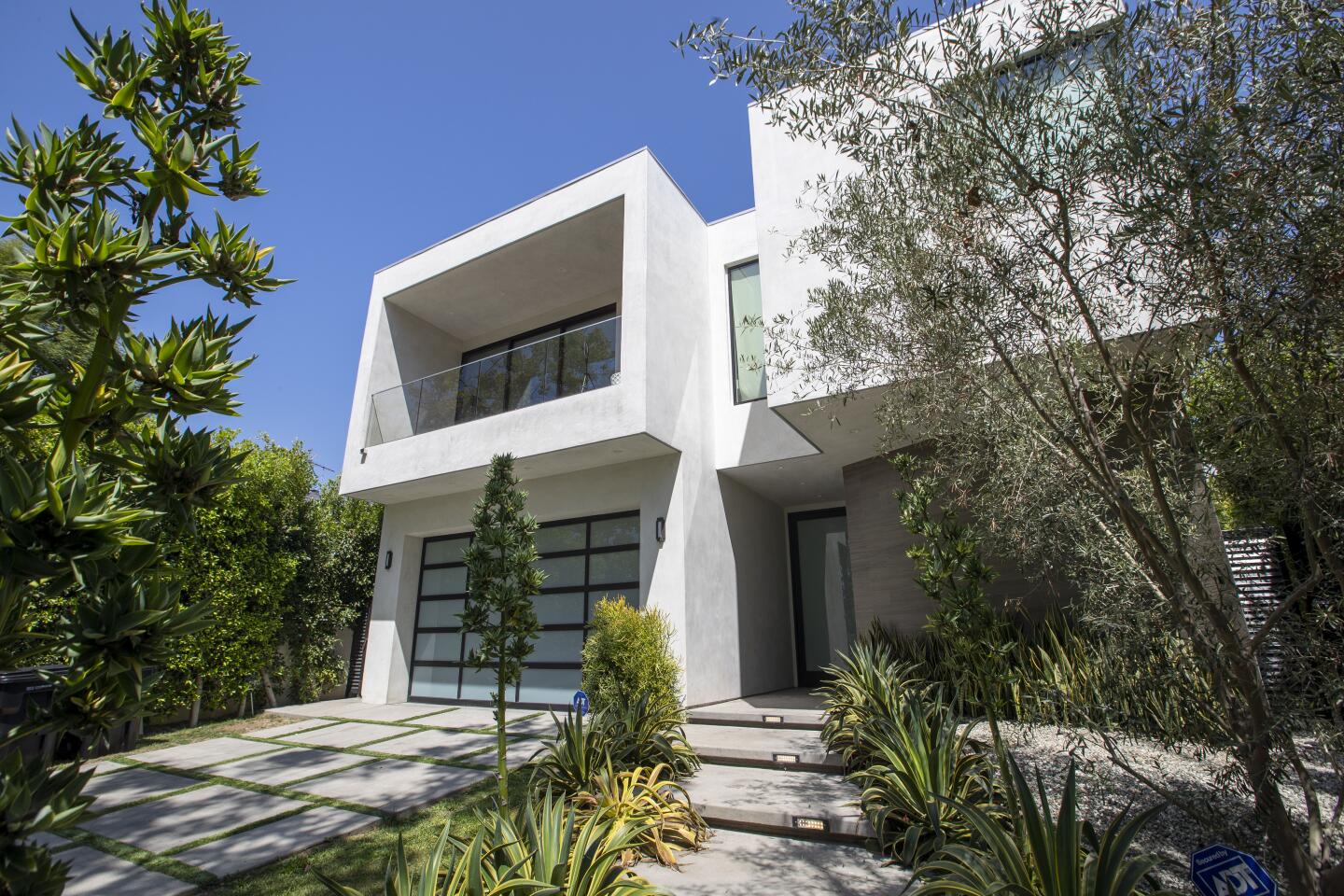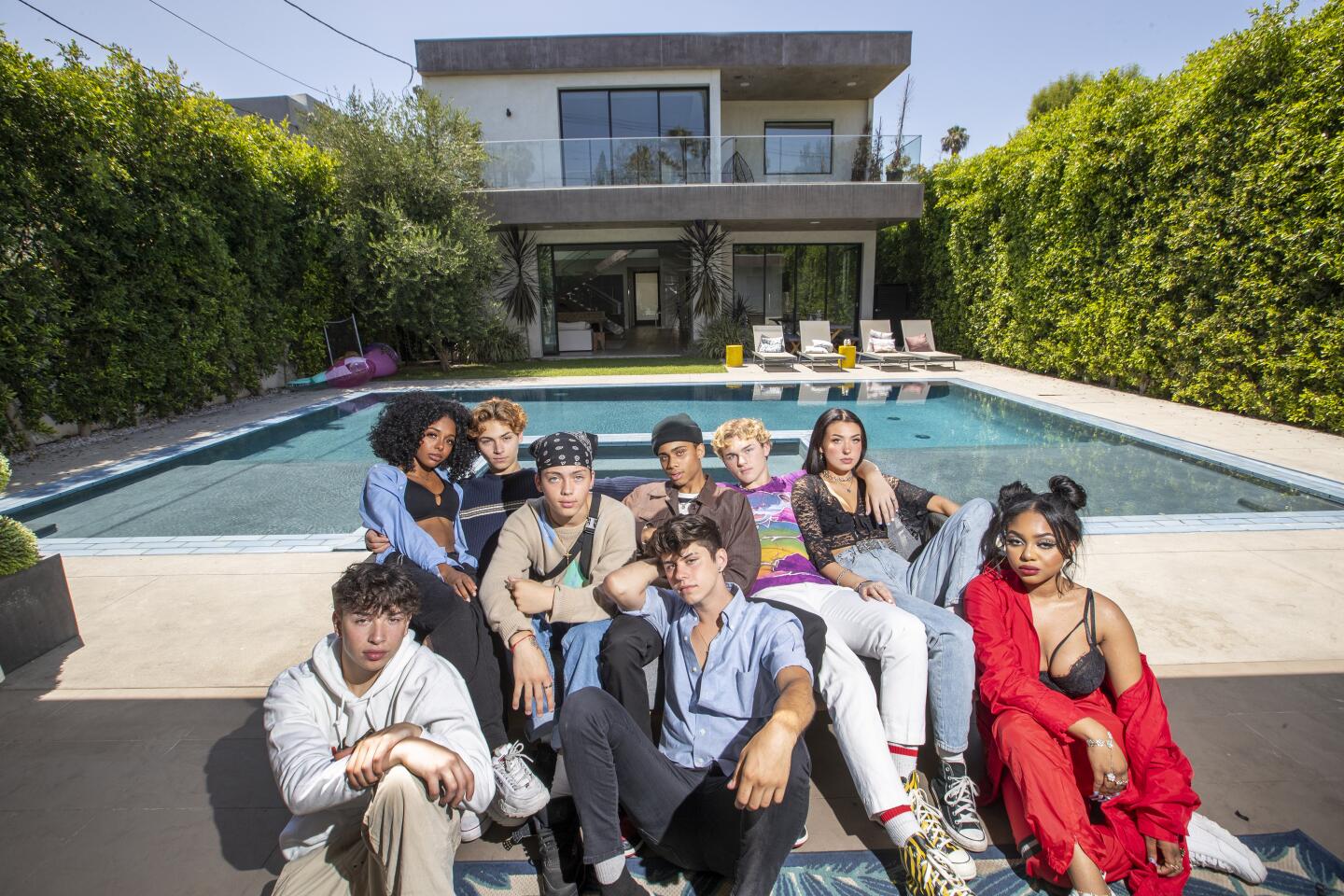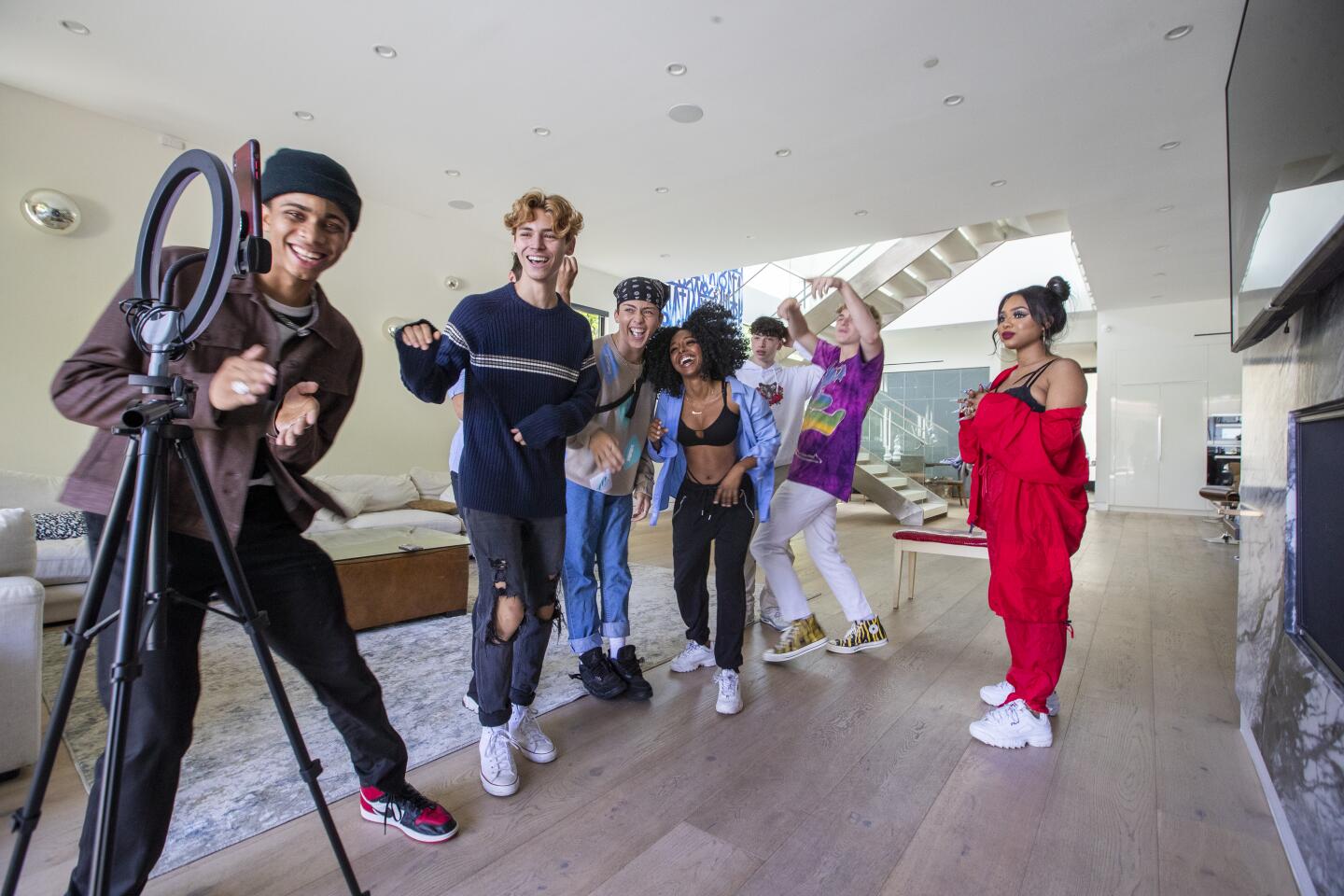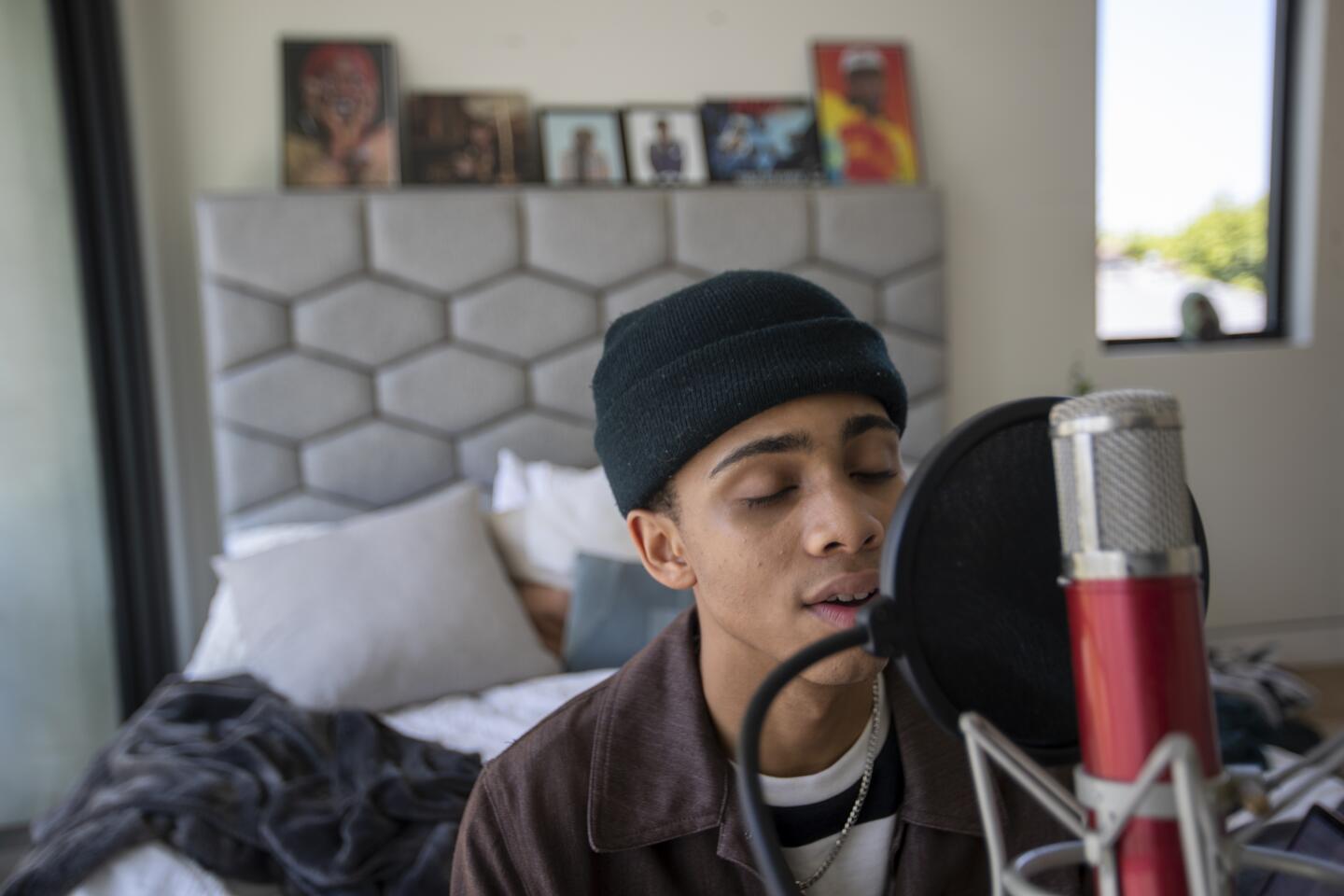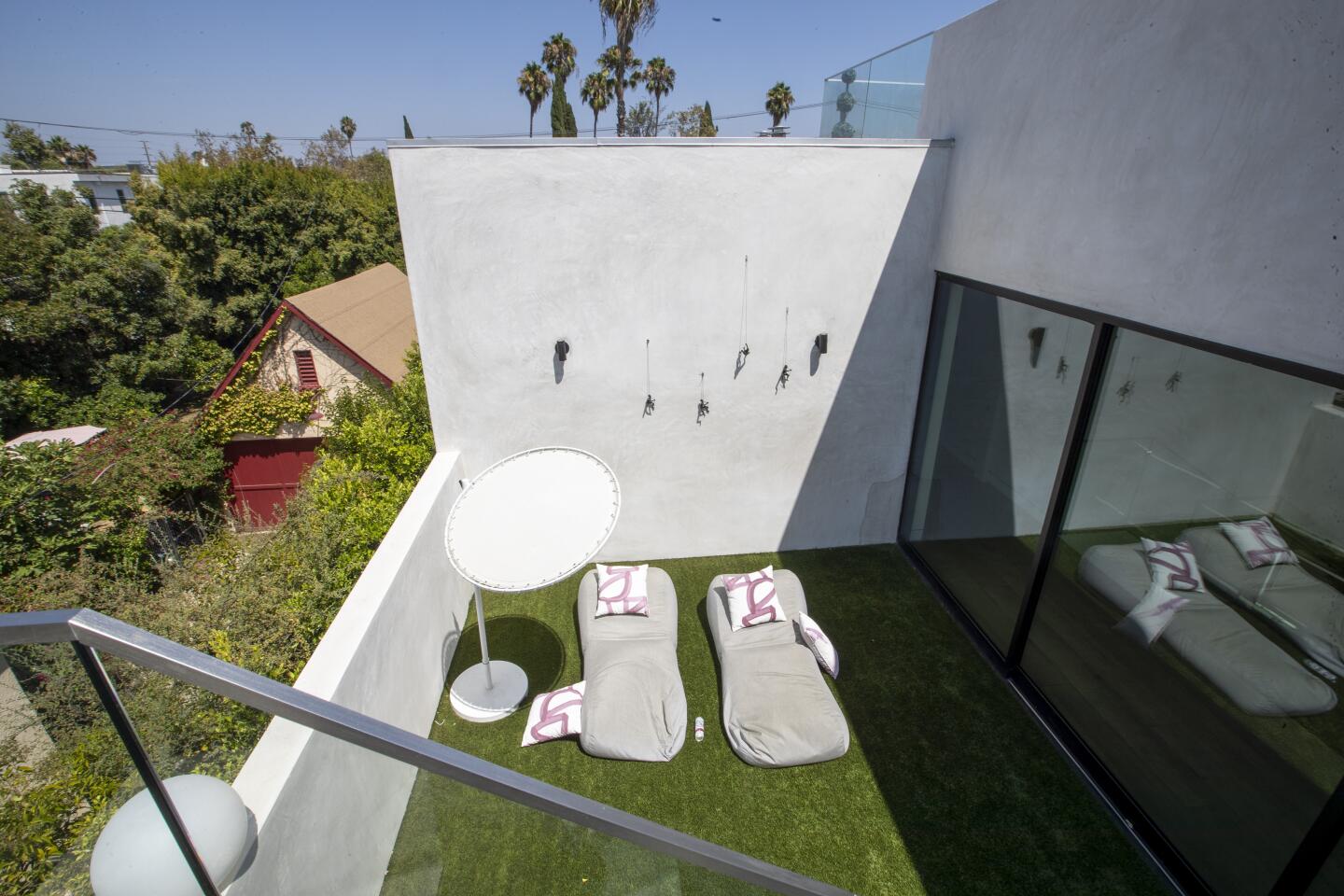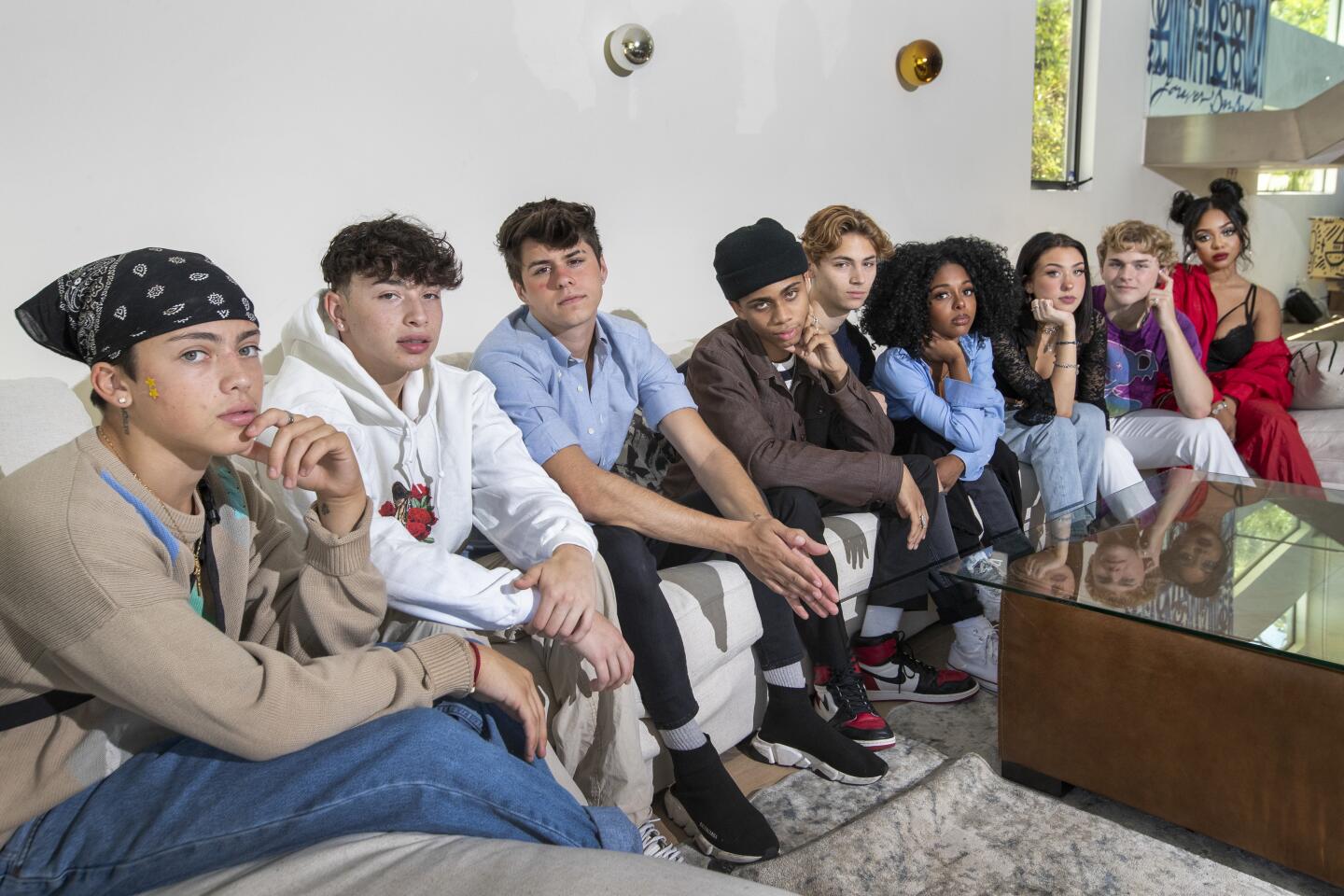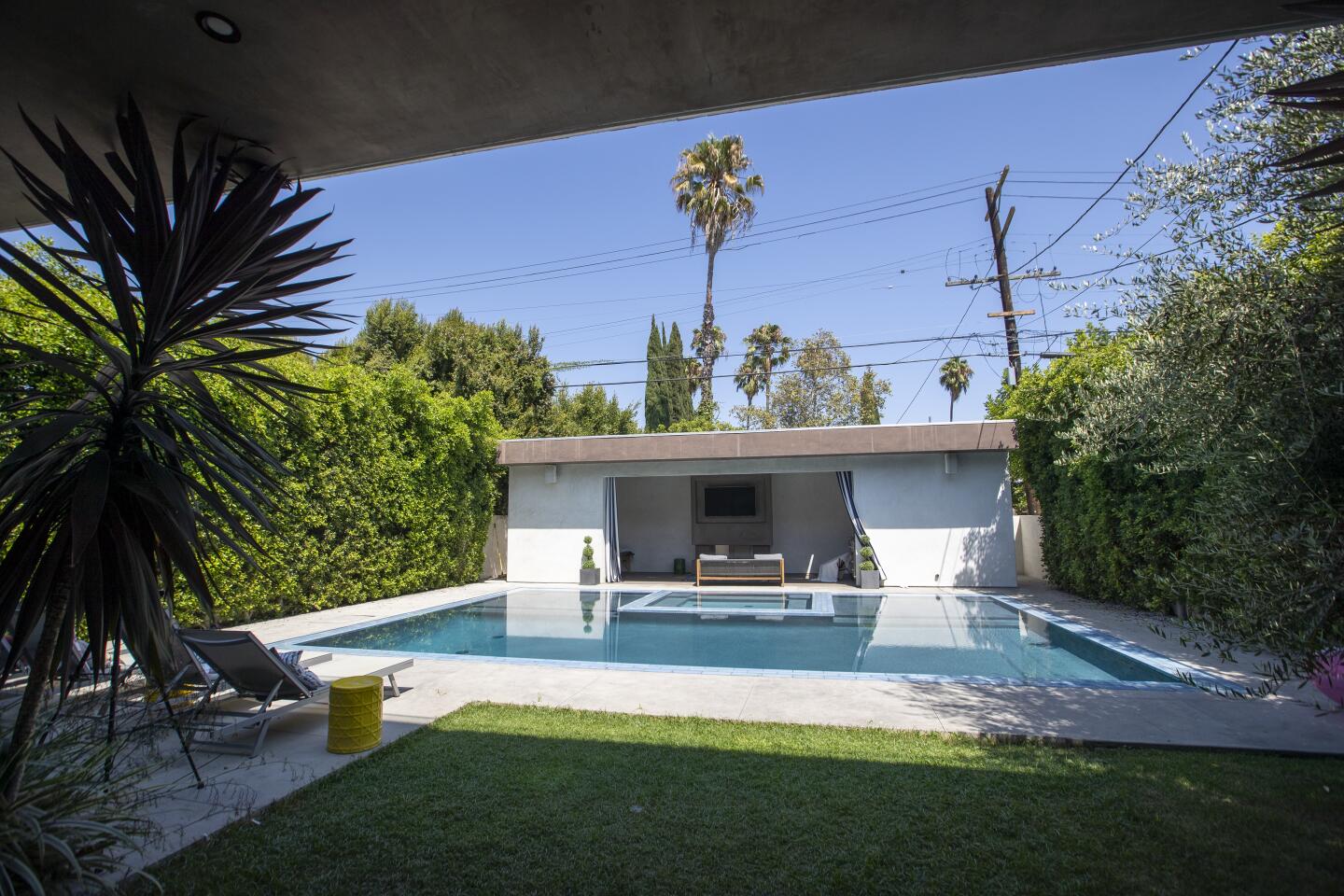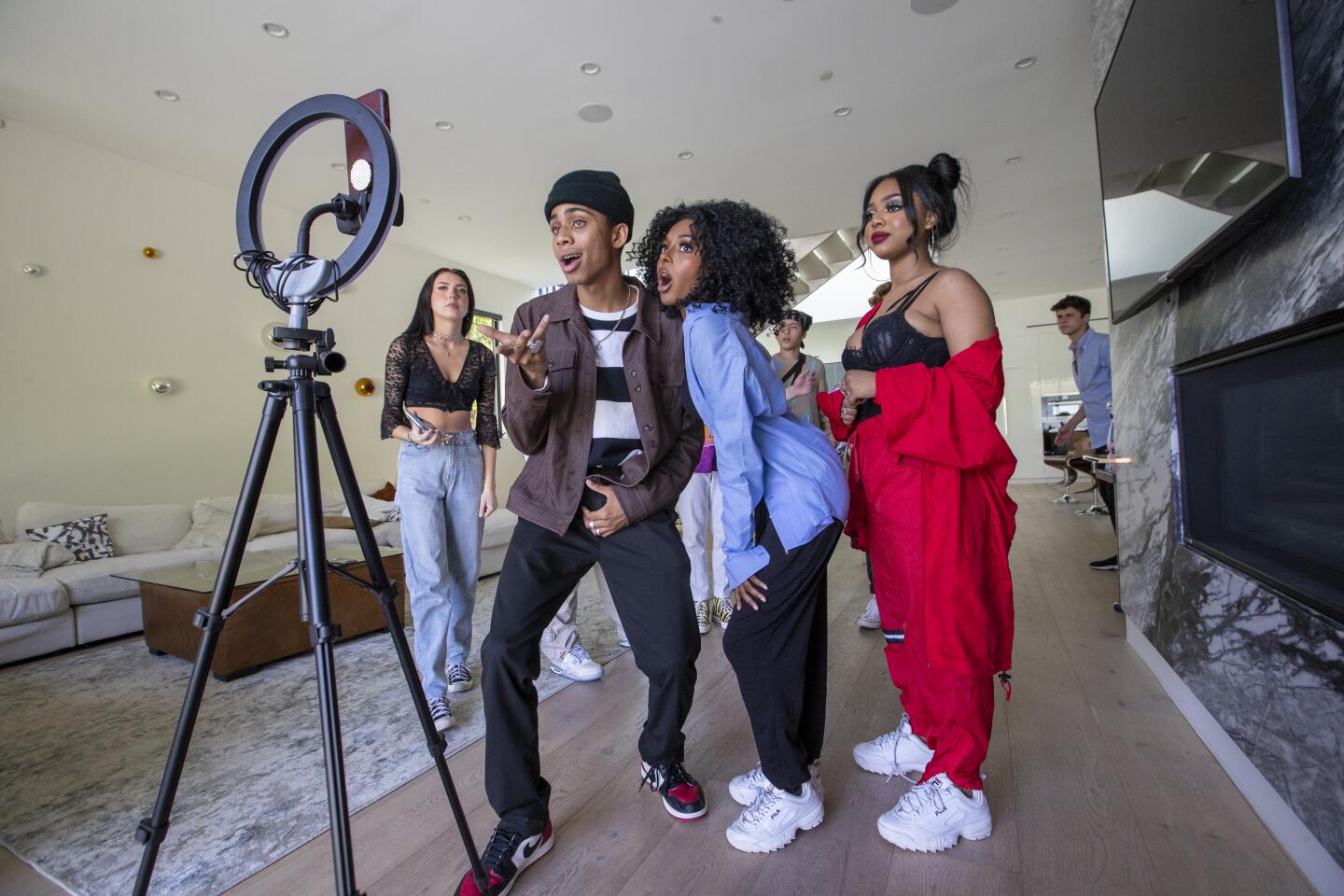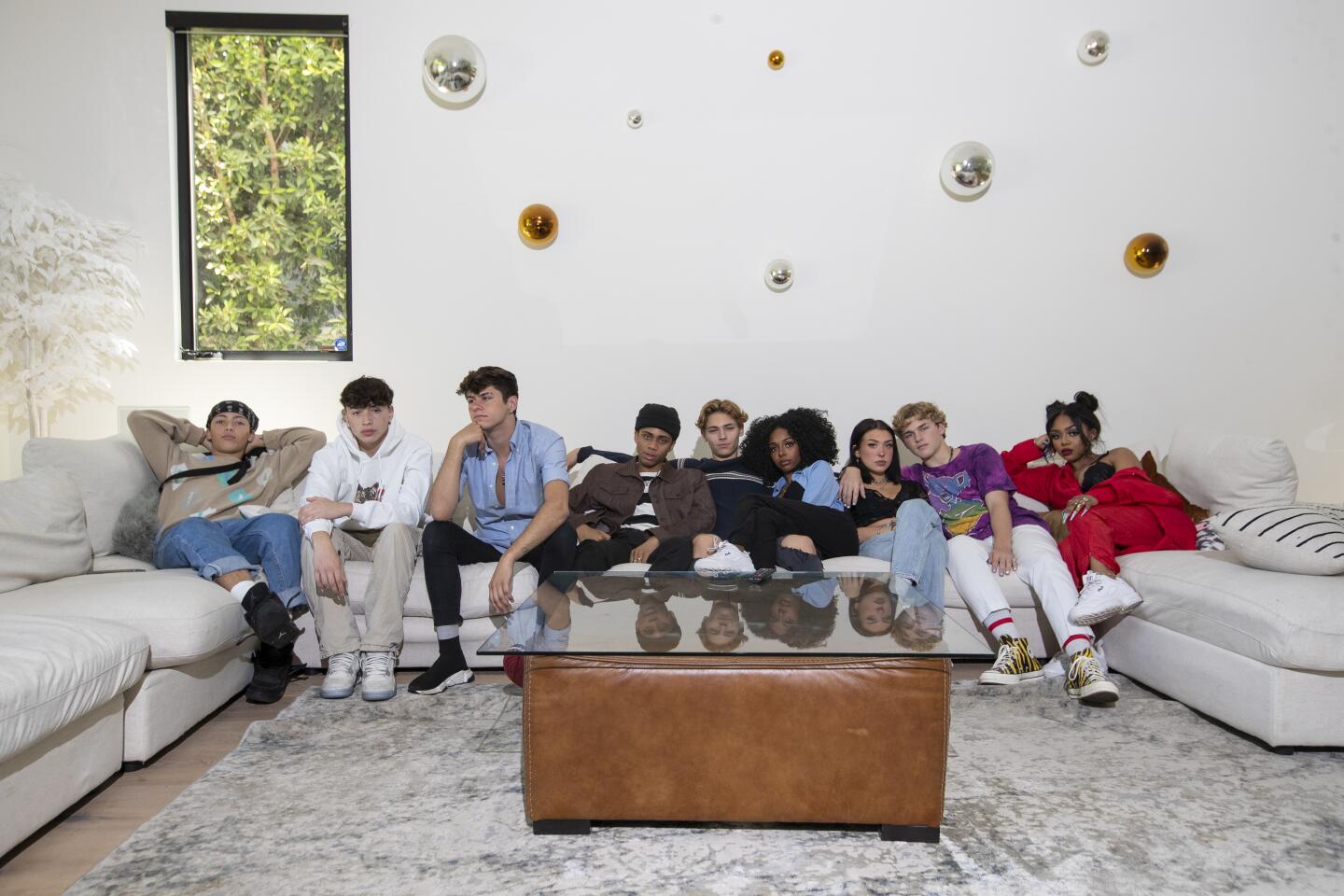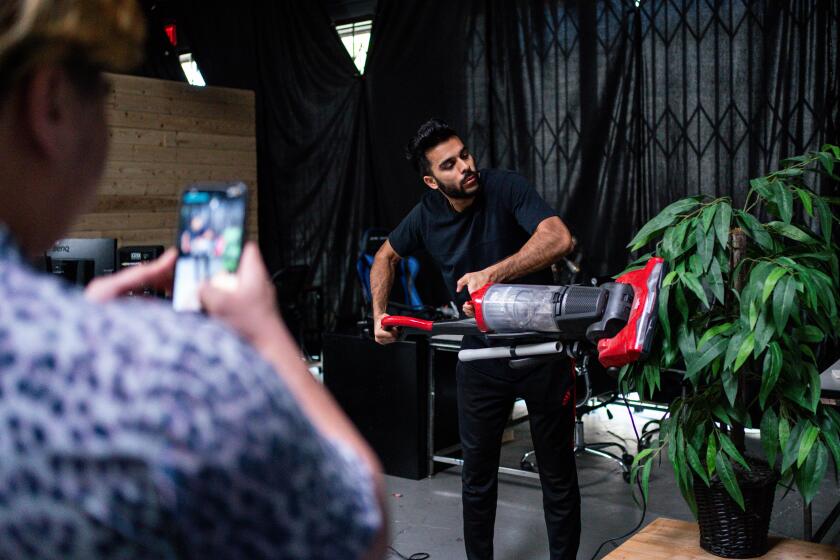TikTok creators flocked to L.A. to become stars. What will they do if Trump’s ban takes effect?
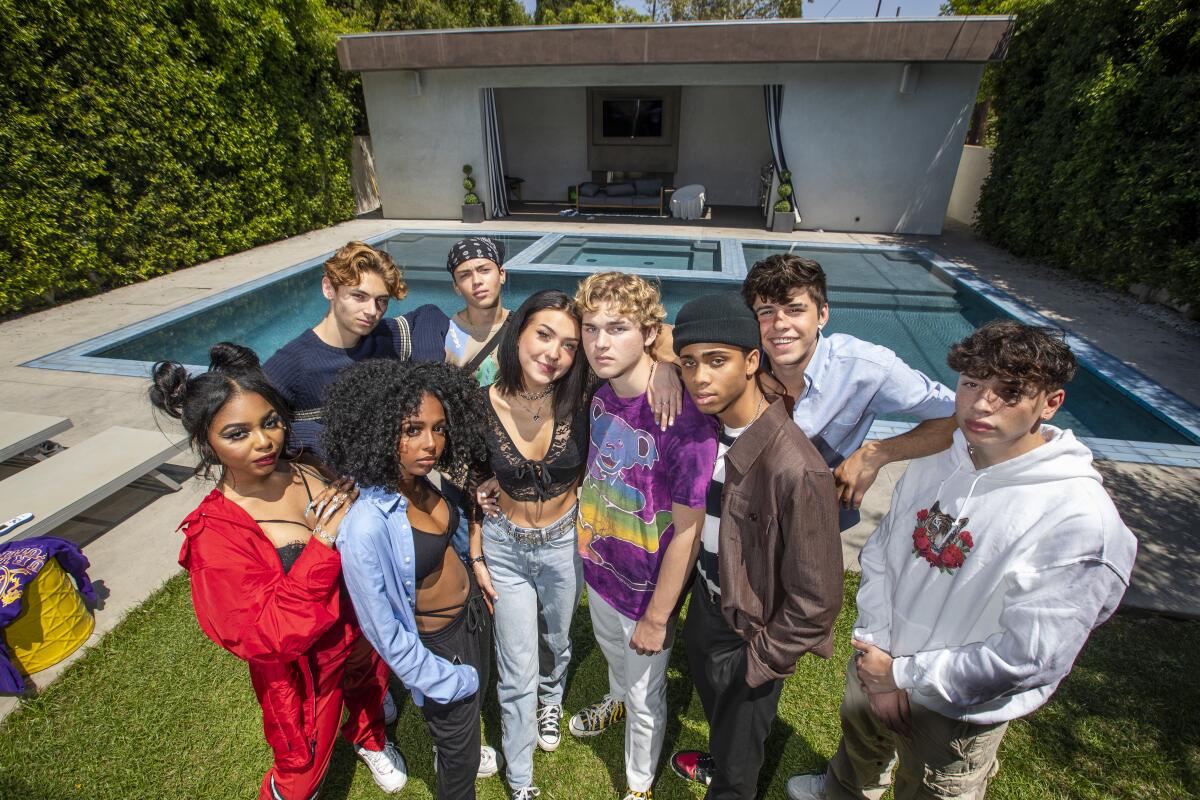
- Share via
With the future of TikTok imperiled as President Trump threatens to shut it down in the U.S., an L.A.-based economy that has sprung up in just the last two years for the app’s mostly young creators and influencers is at risk of tumultuous change.
TikTok is not just a fun diversion for bored lip-syncing teens.
The startling popularity of the app has already given rise to a new Hollywood industry, with the most popular TikTok stars raking in tens of thousands of dollars per month; entire management companies have sprouted to manage these talents.
Aspiring TikTok stars are forming creator communities in large houses across L.A., where teens and twentysomethings live together and constantly imagine new viral videos of up to 15 seconds to keep viewers hooked. But many successful TikTok stars, after riding a vertiginous wave of fame and fortune, are concerned about the future.
Some remember when they built up large audiences on the video sharing app Vine, only to see it shut down in 2017 after it was sold to Twitter.
“Of course, there’s that worry in the back of my mind,” said 24-year-old Jaci Butler, a singer and TikTok creator in L.A. “We all know that Vine went away suddenly, so we know it’s possible ... it’s definitely disheartening, but at the same time, I try to be positive.”
Butler, who has 4 million followers on TikTok, says she makes $4,000 to $8,000 a month through brand deals, which provide the bulk of her income.
“It’s not just having fun and doing dances, it’s where we get to express ourselves ... also where we get to create and make something for brands, to have our income,” Butler said.
TikTok’s fate is in limbo in the wake of the Trump administration‘s threat to ban the app. On Monday, President Trump said TikTok’s Chinese parent company, ByteDance, has until Sept. 15 to sell TikTok’s U.S. operations to Microsoft or another company, with some of the proceeds going to the U.S. Department of Treasury. If such a deal does not happen by that date, TikTok must cease operations in the U.S., he added.
The social video app faces growing scrutiny from the U.S. government, rising competition from rivals like Facebook and the defection of top creators.
Trump administration officials have called TikTok a national security threat because of concerns about ByteDance’s ties to China. TikTok says it has not given and will not give the Chinese government any U.S. user data, which the company says is stored in the U.S. and backed up in Singapore.
Some analysts believe TikTok’s success has caused it to become a pawn as tensions continue to rise in a U.S.-China trade war.
While the U.S. government cannot summarily ban TikTok, it can make it harder for the company to have commercial relationships with U.S. businesses, said Jeff Poston, cochair of the law firm Crowell & Moring’s privacy and cybersecurity group. Such a move could cause TikTok to become unavailable in mobile app stores.
TikTok said in a statement that it “will be here for many years to come” and that it is loved by 100 million Americans. The company also said it will open a transparency and accountability center later this year in Culver City that will allow outside experts to view its content moderation policies and see the code that powers its algorithm.
“We’re building the safest app, because we know it’s the right thing to do,” Vanessa Pappas, TikTok U.S. general manager, said Saturday in a video on the app. “We appreciate the support, we’re here for the long run, and continue to share your voice here and let’s stand for TikTok.”
The company has a big presence in Southern California. TikTok estimates that there are more than 65 career TikTok creators and nearly a dozen influencer houses launched in the area because of the app. In the U.S., TikTok has 1,500 employees, with plans to add 10,000 more over the next three years. Its largest U.S. office is in Culver City.
“All in all, I think it’s a huge mistake for the government to penalize innovation,” said Culver City councilman Thomas Small. “If TikTok is damaged or put out of business here, that will definitely be harmful to the local economy.”
TikTok, a popular based social video app owned by China-based ByteDance, has seen explosive growth this year amid the coronavirus crisis. The company has plans to hire more people, including at its Culver City office.
The app debuted in the U.S. in 2018 after ByteDance purchased the lip syncing app Musical.ly. Artists such as Lil Nas X have used the platform to build momentum for their songs to become hits. Talent agencies discover rising stars through the app, and celebrities have posted trending dance videos to connect with fans.
TikTok played an essential role in building up the social media careers of most of the 12 members of the Vault, a house of influencers that live and create videos together in West Hollywood. It is one of nearly a dozen such properties that have popped up in L.A. where popular digital creators collaborate on TikTok videos in picturesque homes.
The Vault is a modern, seven-bedroom home with more than 5,000 square feet of living space. There’s a rooftop deck, a pool and an interior courtyard with fake grass where influencers hang out and make music.
“It’s great to always have a bunch of ideas and bounce off of each other,” said 18-year-old singer-songwriter and TikTok creator Bryce Xavier, who lives at the Vault.
Xavier says he can make $20,000 to $30,000 a month through brand deals and promotions on TikTok. In the past, he posted music on platforms like iTunes, but he said it was harder to gain a following based on searches — whereas on TikTok, the app surfaces new content and new creators to users.
“The audience and community that it built, it’s just like no other, so it would really be sad,” Xavier said of the threats to TikTok’s U.S. presence. “It would suck to lose that.”
TikTok executives emphasize that they are in it for the long haul. The company recently announced a $200-million fund in the U.S. to help support its creators; it plans to increase that amount to more than $1 billion in the next three years.
“There’s so much investment in the company, it will be very difficult to imagine a scenario where it just collapses or is shut down in what has really become its largest market,” said Chris Jacquemin, cohead of digital at talent agency WME, which represents TikTok stars including Addison Rae and Chase Hudson.
Nevertheless, TikTok’s future in the U.S. remains uncertain.
“People in L.A. consider it to be the cool kids’ place,” said Eugene Lee, chief executive of ChannelMeter, a San Francisco-based business that provides analytics and monetization for social video creators. “But that said, I think at the back of their minds, they’re probably all wondering, ‘Will we have a job in six months?’”
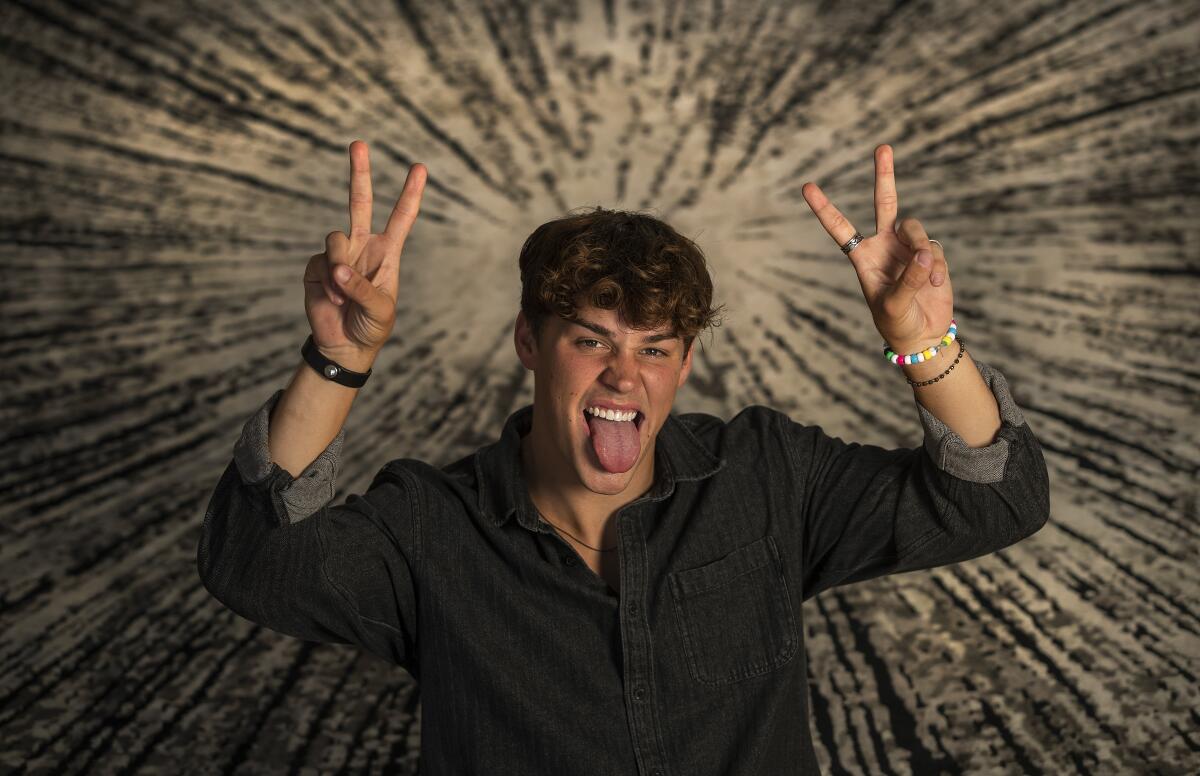
Rivals are making aggressive moves to poach popular TikTok creators. Some, like influencer Noah Beck, are concerned about how TikTok handles their data and have joined competing music video app Triller as investors. Beck is now encouraging his 9.7 million TikTok followers to join him on Triller.
“When I read the articles talking about national security issues, I’m like, ‘I don’t feel too safe on this,’” said Beck, who lives in Bel-Air.
Instagram also plans to launch a new short-form video feature, called Reels, this month.
L.A.-based Triller was the second most downloaded mobile app in the U.S. on Saturday, according to the San Francisco-based mobile research firm Sensor Tower. A week ago, it ranked 1,048th in the U.S., Sensor Tower said.
“Its sharp rise in adoption here can be directly attributed to consumers seeking alternative platforms in advance of a potential TikTok ban,” said Randy Nelson, Sensor Tower’s head of mobile insights.
TikTok stars including Josh Richards, said they plan to leave TikTok for L.A.-based video-sharing app Triller.
On Sunday, the U.S. tech firm Microsoft said it is exploring buying TikTok’s U.S., Australian, New Zealand and Canadian operations and plans to bring all of its U.S. user data onto American soil. But such a deal would require government approval, and some analysts say it’s possible the acquisition could hit obstacles.
Butler said she would not be opposed to Microsoft buying TikTok. She wondered what changes Microsoft may make to the app.
“I’m always open to change, if it changed for the better,” Butler said. “But I do like the way things are set up with it now.”
More to Read
Inside the business of entertainment
The Wide Shot brings you news, analysis and insights on everything from streaming wars to production — and what it all means for the future.
You may occasionally receive promotional content from the Los Angeles Times.
